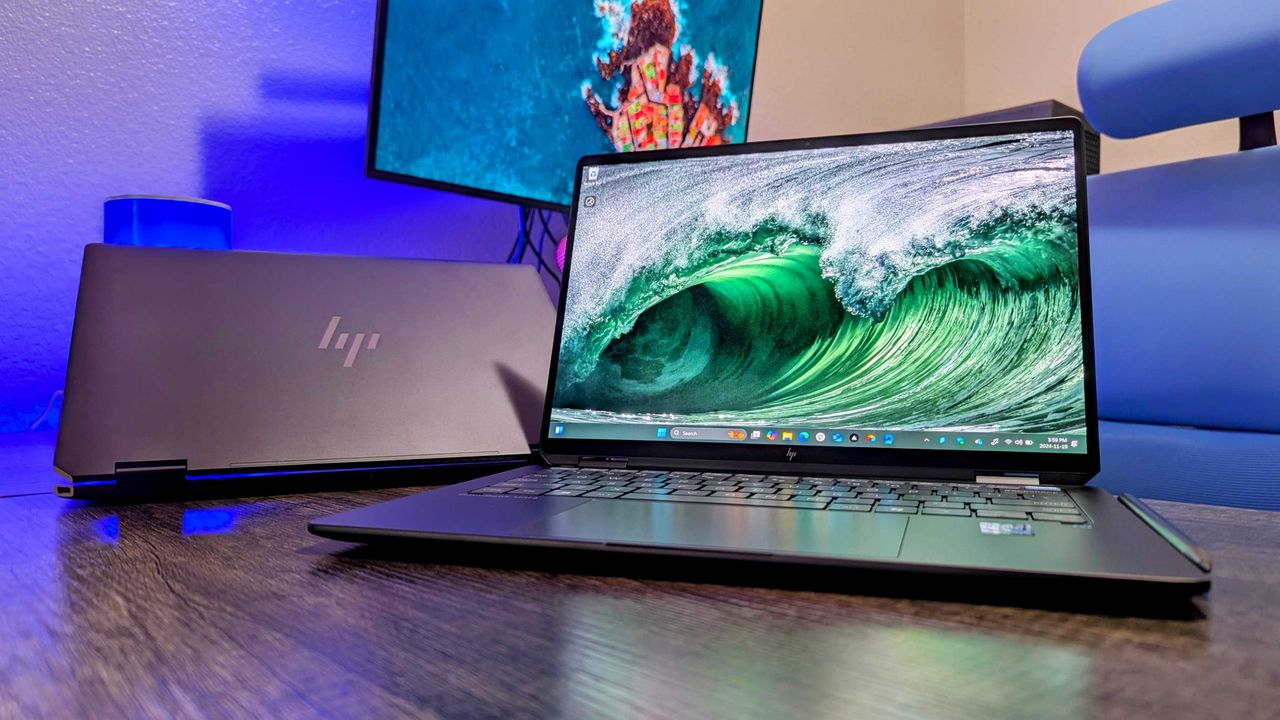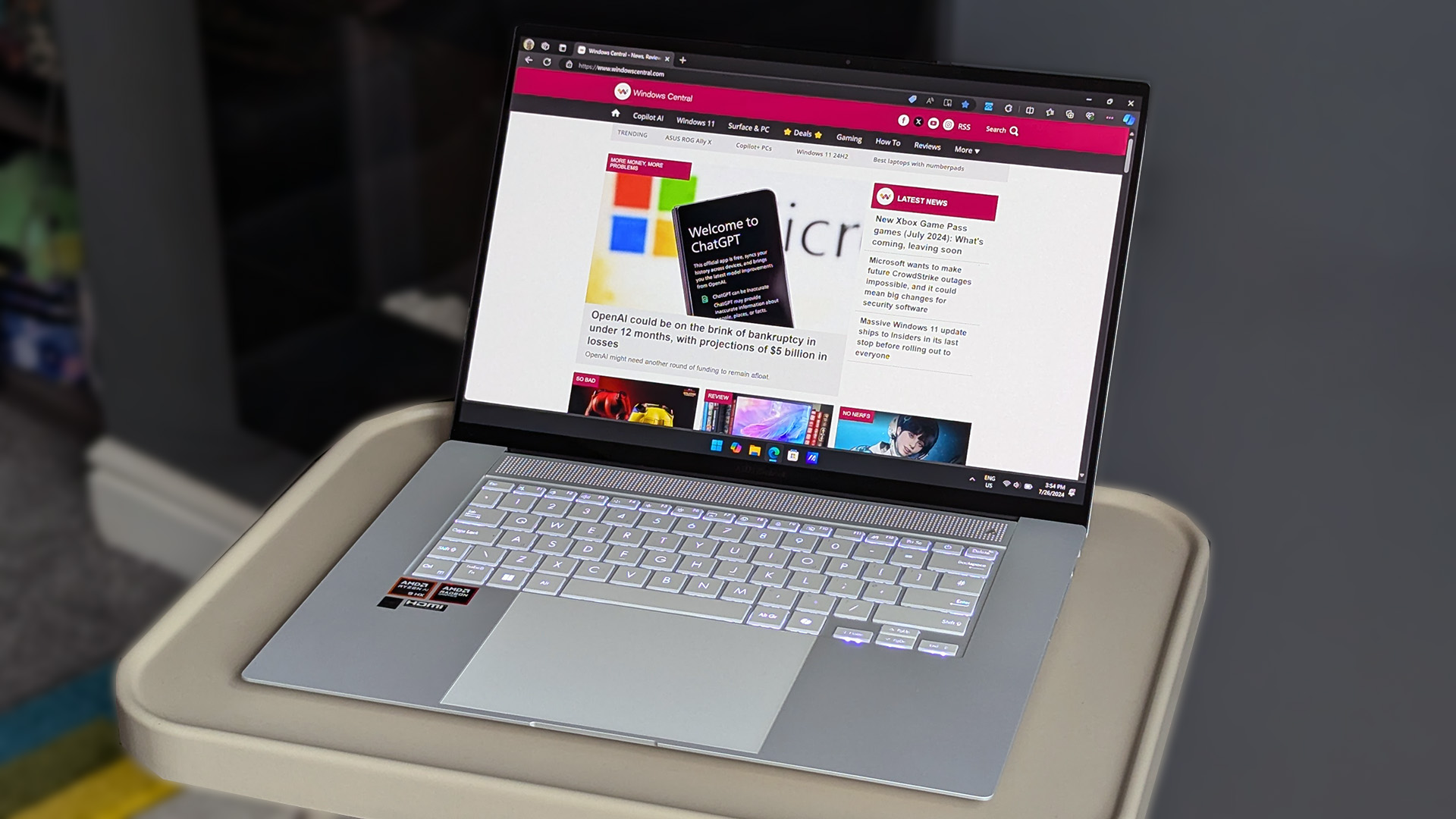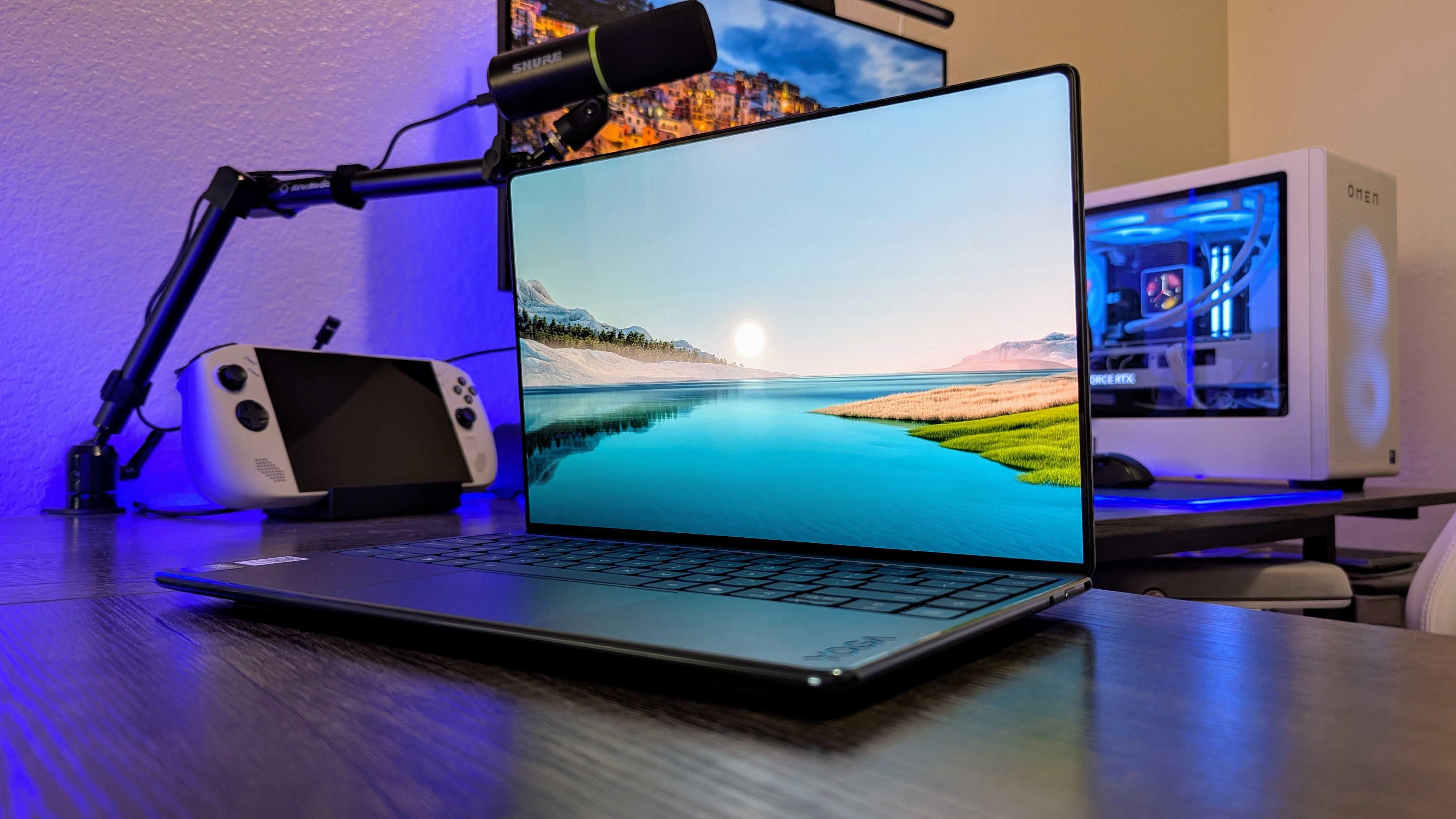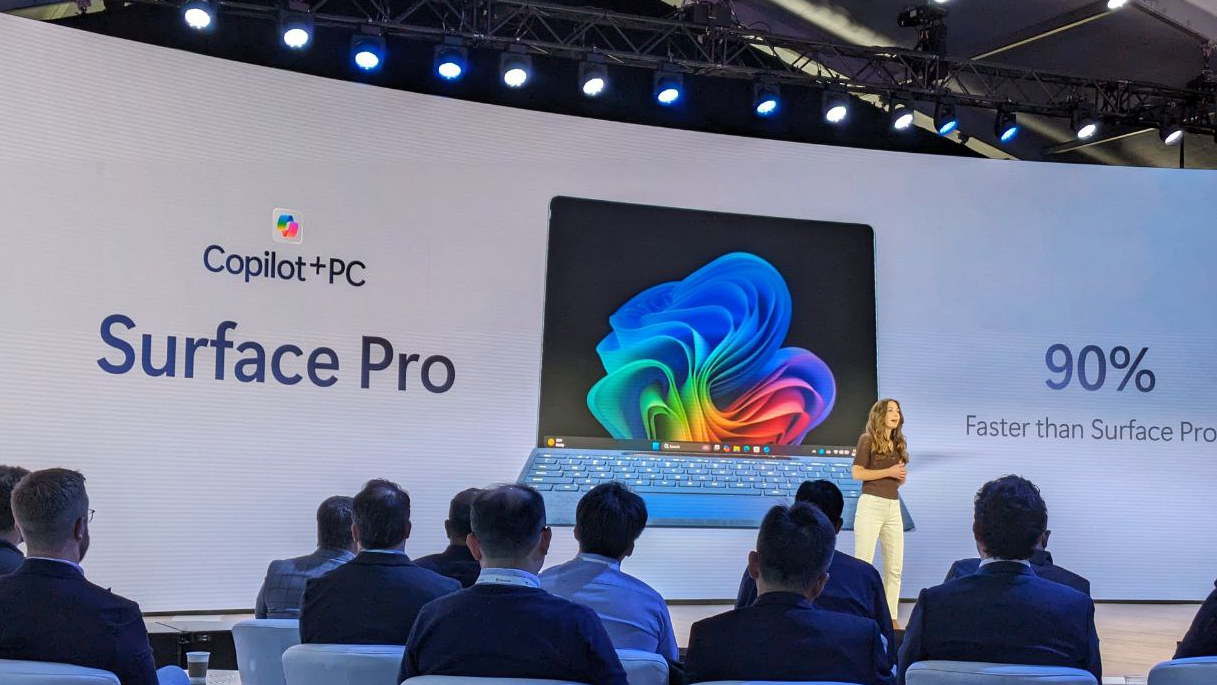
Intel predicts a significant surge in AI-equipped PC usage among businesses, based on a survey of approximately 5,000 companies and IT leaders in the field. The survey aimed to gather insights about the integration of AI PCs within these sectors.
The goal of the study was to find out the level of knowledge individuals have regarding AI-powered computers, as well as identifying any obstacles that might be hindering the widespread acceptance of AI PCs.
According to a study conducted at the behest of Intel, it’s revealed that an overwhelming majority (approximately 87%) of worldwide businesses are either currently migrating towards AI-powered computers or are planning to do so in the foreseeable future.
Intel pointed out that a significant number of individuals currently utilize AI services like real-time translation. It’s important to note that most AI tools operate in the cloud, meaning they don’t necessitate the user to own an AI-equipped computer.
Additionally, the data indicates a preference among IT personnel for local AI abilities, and it seems that these areas enjoy approval from top management.
What’s holding AI PCs back?
It seems that a lack of comprehension about the business benefits of AI in computers is one significant barrier preventing more widespread adoption among employees. As per Intel’s findings, just 35% of workers possess a clear understanding of the advantages, whereas over half of leadership team members recognize the potential offered by AI-equipped PCs. The survey results indicate this contrast.
- Among the wider employee base, there’s an education gap around the potential of AI PCs—only 35% of employees are thought to have a concrete understanding of this technology’s business value, so they aren’t likely to be the driving force behind AI PC adoption.
- Conversely, more than half (51%) of leadership team members have a firm understanding of the potential AI PCs bring—this is likely to make them more receptive to the idea of investment.
Honestly, I find those figures shocking. In fact, I’d go as far as to say they are unbelievable.
It seems to me that the blame isn’t on Intel here, but rather on a common practice among middle and upper management in various organizations – using trendy buzzwords like AI and asserting it as the future, often without clear strategies or plans for its implementation. This behavior could be due to their desire to appear forward-thinking.
Whether those managers genuinely believe the hype or just like being modern is impossible to say.
From my perspective, asking a survey to measure the number of managers and leaders who comprehend AI is similar to judging the real height of male Tinder users based on their profiles. Just like people can be dishonest on surveys or dating platforms, the responses may not accurately reflect the truth.
AI and security
According to Intel’s study, around one third of individuals who haven’t adopted AI-powered computers express their top worry as security issues. On the other hand, just under a quarter of those currently using AI systems mention security as a problem for them.
According to Intel, a lack of knowledge about how to train artificial intelligence (AI) on personal computers (PCs) is one of the main reasons why some people haven’t adopted it yet. Specifically, around 34% of those surveyed cited the requirement for training as the most significant challenge they face.
Approximately one third of individuals using AI computers haven’t encountered any problems whatsoever, be they related to security or not.
PC shipments

In the second quarter of 2025, worldwide PC shipments experienced a significant surge of 8.4% compared to the same period last year, as reported by Counterpoint Research. This is the most substantial year-over-year (YoY) growth seen since 2022, with the previous spike in demand occurring during the global pandemic.
The company credits the rise in sales to the approaching discontinuation of Windows 10 support, as well as the early adoption of AI-equipped computers. Furthermore, global tariffs played a role, as retailers have been stockpiling inventory in anticipation of later this year.
Just to clarify, PC shipment numbers indicate the number of devices dispatched by the manufacturers. On the other hand, PC sales (the number of units actually purchased by consumers) are a different measurement altogether.
The shipping of personal computers tends to increase or decrease according to forecasts. However, the future quarters remain uncertain due to a variety of influencing factors like changing tariff rates.
As a tech enthusiast, I’m sharing some insights based on my analysis: Starting from the second half of 2025, there seems to be a looming uncertainty around PC shipments due to tariff-related matters. But, buckle up for 2026! The demand for AI PCs is expected to serve as a powerful boost. In fact, I predict that more than half of the laptops shipped from 2026 and beyond will be AI-equipped machines.
It’s possible that artificial intelligence (AI) computers could soon become commonplace, blurring the lines between human and AI interactions for users, making it challenging to assess the impact of AI abilities on consumer preferences.
Affordable AI PCs

This year, Qualcomm launched the 8-Core Snapdragon X Plus chip, specifically tailored for budget-friendly Windows on Arm laptops. In the recent development, AMD has revealed its Ryzen AI 5 330 processor, similarly aimed at building cost-effective AI PCs.
As the use of such chips increases in frequency, it’s reasonable to expect an uptick in AI-equipped PC sales soon. However, this surge in sales doesn’t automatically imply a growing fascination with AI technology as a whole.
As a tech enthusiast, I’m excitedly looking forward to September 2024 when International Data Corporation (IDC) will shed light on an interesting trend: it seems that the necessity to upgrade hardware could play a significant role in people’s decisions to buy personal computers, perhaps even overshadowing AI-related factors.
Though AI is currently a popular term, it hasn’t significantly influenced the decision-making process for people buying personal computers, according to Jitesh Ubrani, who oversees global mobile device tracking.
Ubrani did note, however, that businesses may purchase AI PCs for the sake of future-proofing.
Over the course of time, PC manufacturers are consistently enhancing their product ranges, leading us towards a significant influx of AI-integrated computers in the market. It’s quite possible that many well-known brands will transition into offering AI-equipped devices as standard, implying that any individual who makes a purchase is inadvertently embracing an AI PC experience.
Disastrous Copilot+ PC launch

It’s intriguing that Intel’s report highlights “AI PCs,” without specifically naming the Copilot+ PCs. This could be advantageous given the challenging launch of the Copilot+ PCs.
From my understanding, neither Qualcomm nor Microsoft explicitly mentioned an exclusivity deal with regards to Copilot+ PCs; however, it’s worth noting that Snapdragon X processors were the sole chips used in Copilot+ PCs for a significant period of time.
In August 2024, both AMD and Intel began distributing processors that supported Copilot+ PC functionalities. However, it wasn’t until a later period that Microsoft fully extended the complete array of Copilot+ experiences to these specific processors.
In the same blog post where they unveiled the extension of Copilot+ PC experience to computers equipped with AMD Ryzen AI 300 series and Intel Core Ultra 200V processors, Microsoft also revealed an exclusive feature that would be available on Snapdragon X-powered PCs for a brief period.
AI PC adoption

According to PC sales data, surveys, and all other relevant info, it seems that a significant number of individuals are either using AI-based computers now or planning to switch over. However, it remains uncertain what specific motivations are prompting this shift towards AI PCs.
It seems that business decision-makers are seeing the promise of Artificial Intelligence (AI) computers. While the technology might not directly boost productivity or income at first, investing in AI PCs could help companies prepare for the future and ensure they remain competitive as technology advances.
In simpler terms, more and more entry-level and mid-range computers will come with AI capabilities as standard. Even high-end computers often have AI functionality built in.
As technology advances, it’s quite possible that the divide between top-tier AI laptops and leading Windows laptops could gradually blur, potentially merging completely.
With no information about the frequency of NPUs being employed for regional AI assignments, it can be challenging to decide whether AI personal computers are just trendy terminology or an essential requirement.
Read More
- How to Get the Bloodfeather Set in Enshrouded
- The Pitt Season 2, Episode 7 Recap: Abbot’s Return To PTMC Shakes Things Up
- 4 TV Shows To Watch While You Wait for Wednesday Season 3
- Every Targaryen Death in Game of Thrones, House of the Dragon & AKOTSK, Ranked
- 10 Movies That Were Secretly Sequels
- Where Winds Meet: How To Defeat Shadow Puppeteer (Boss Guide)
- Felicia Day reveals The Guild movie update, as musical version lands in London
- One of the Best EA Games Ever Is Now Less Than $2 for a Limited Time
- Goat 2 Release Date Estimate, News & Updates
- Best Thanos Comics (September 2025)
2025-07-20 16:10